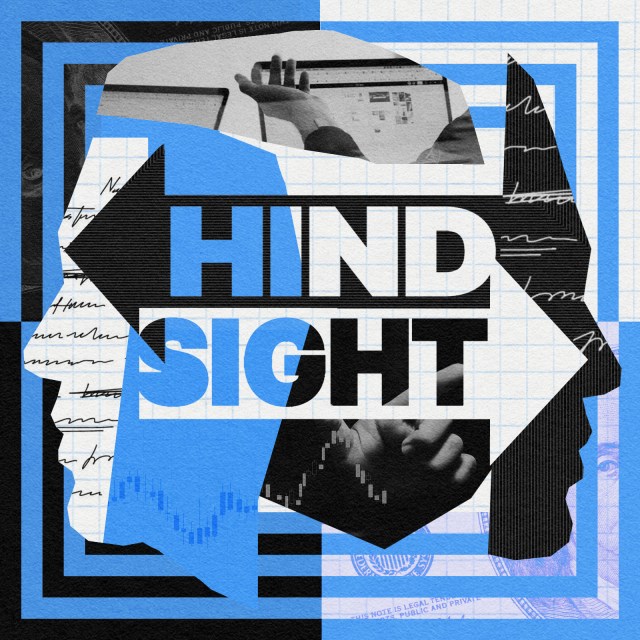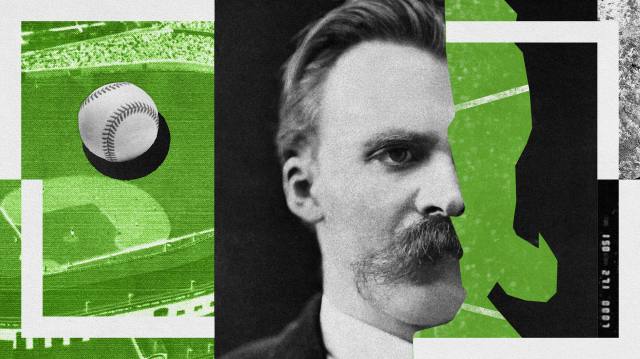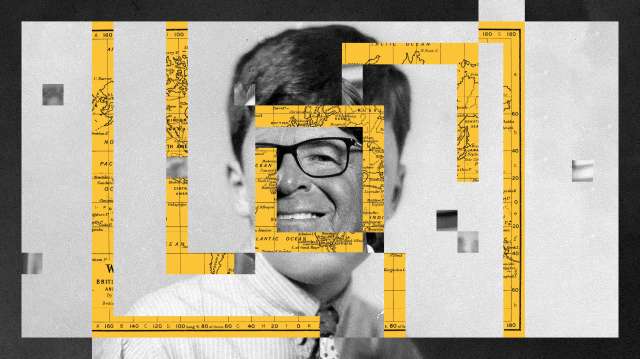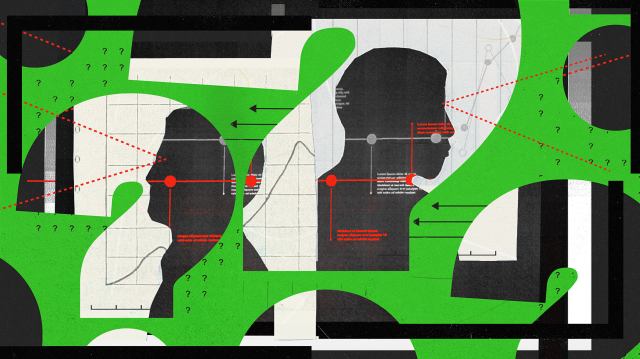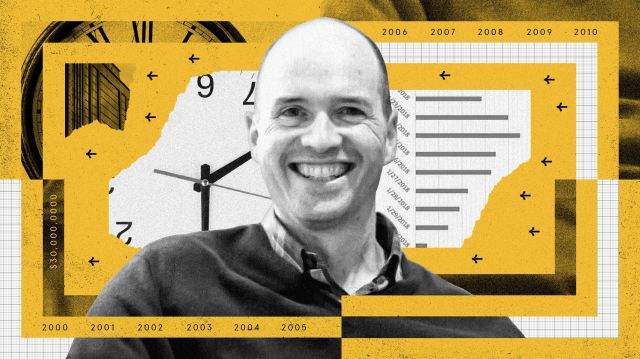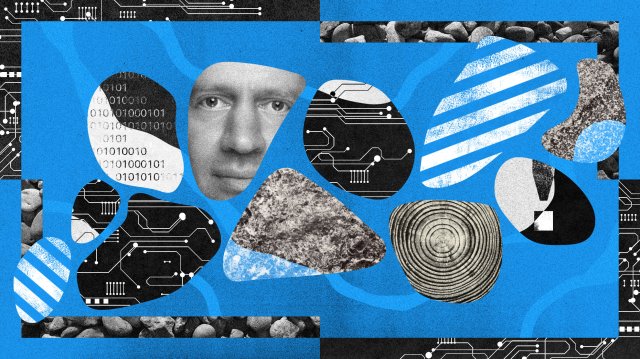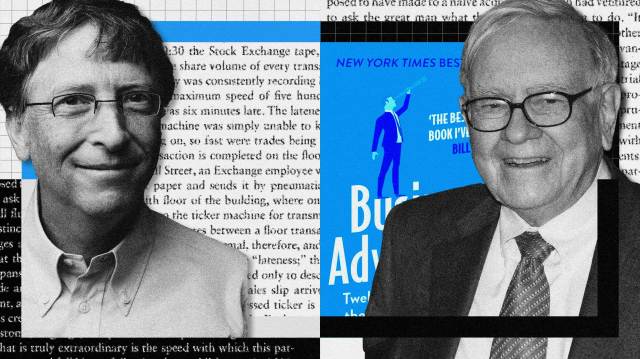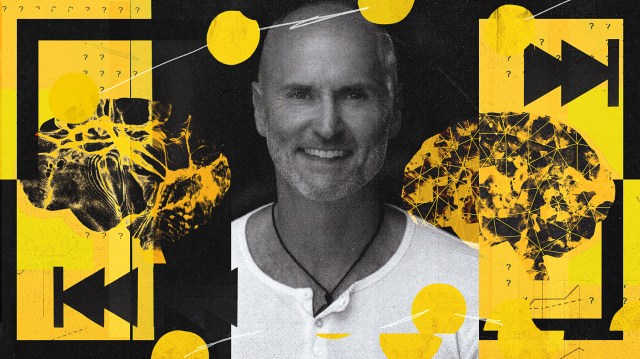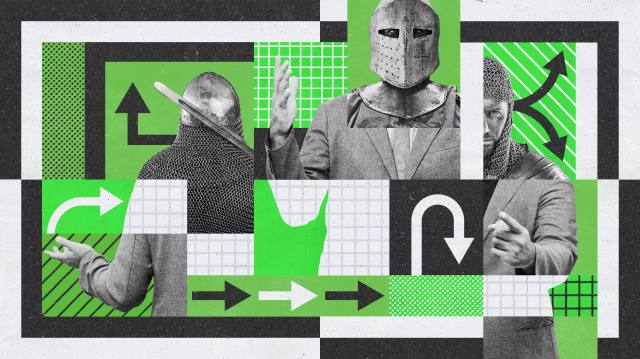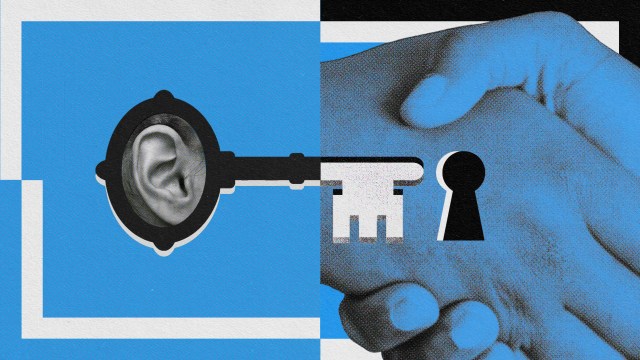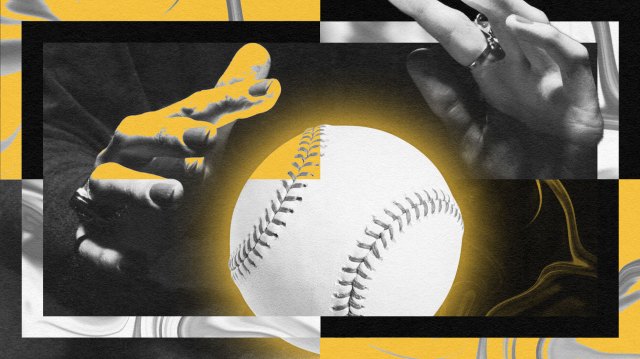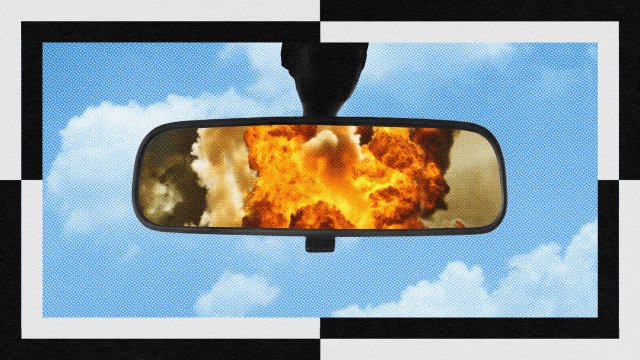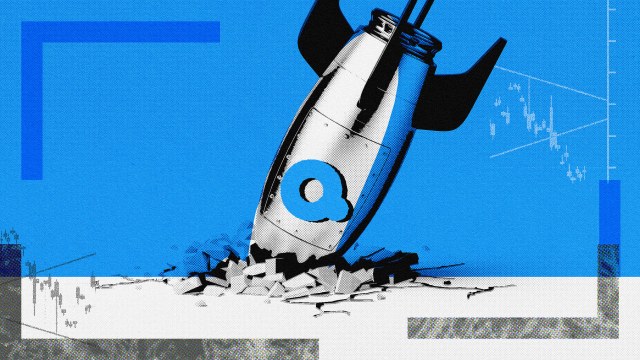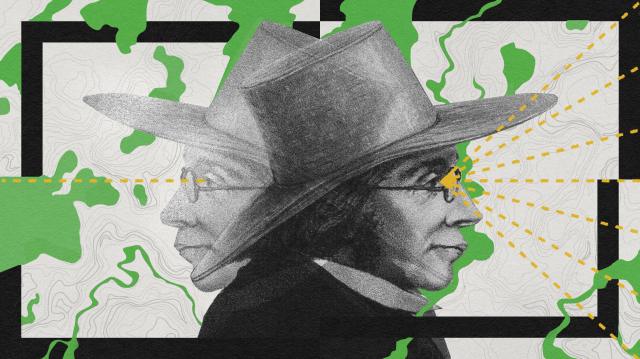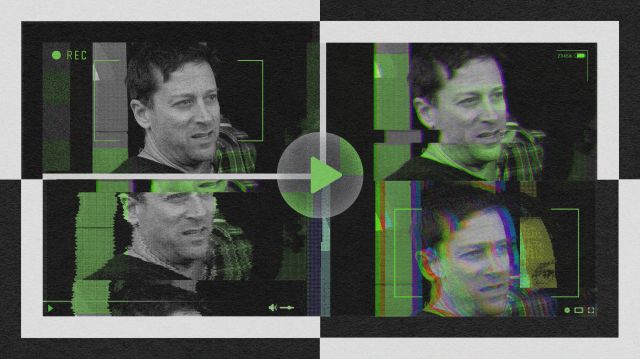How to free yourself from “hindsight bias”

- “Hindsight bias” is the tendency to judge ourselves (and others) for decisions that did not produce the outcomes we desire, based on information that wasn’t available at the time.
- The primary danger of hindsight bias is that it imposes very real costs in the present.
- To limit the harmful effects of hindsight bias, remember the wisdom of Ralph Waldo Emerson: “Finish each day and be done with it.”
“It is difficult to make predictions, especially about the future.”
A remark in the Danish parliament, as recorded by Karl Kristian Steincke, circa 1937-1938
Getting rich in the stock market is, in retrospect, very straightforward. All you needed to do was invest the entirety of your savings into the Hansen Natural Corporation sometime before the summer of 2003 and then wait. The past two decades have been extraordinary for Hansen Natural shareholders: The company shifted its strategy from selling bottled juice products to focusing on energy drinks, eventually becoming the Monster Beverage Corporation in 2012. For every $1,000 you invested, you’d have approximately $1.2 million dollars in your account today.
Unfortunately, I didn’t know Hansen Natural existed in 2003. You probably didn’t either — there were few reasons to pay attention to the company at that point. It’s notable today because, with the benefit of hindsight, it’s one of the best-performing financial investments of the past twenty years. I don’t feel bad about missing out on Hansen Natural, but I have similar sorts of regrets.
Early in my career, I invested a significant portion of my meager savings in Apple Inc. stock and decided to sell the shares a few years later for a modest gain.
I used the proceeds to buy a nice couch. At the time, I was in the process of moving from New York City to Colorado, I needed to purchase furniture, and I thought it was prudent to avoid financing household purchases with credit card debt.
Today, those shares of Apple are worth approximately 46 times what I paid for them, making that couch the most expensive consumer goods purchase of my adult life.
Regrets of selection and inaction sting just as much. I remember the day one of my engineering professors mentioned a small startup that was using a new algorithm to index the entire internet, and I remember the day Google went public a few years later. At the time, I thought the company was overvalued, so I decided to invest my available funds in another up-and-coming technology company instead. (That company went bankrupt a few years later.)
I also remember when Amazon launched its Prime delivery subscription. I signed up immediately and realized a few months later that my behavior had changed. Aside from perishables like groceries, most of my household spending shifted from brick-and-mortar retailers to online retailers like Amazon. This was well before Amazon became one of the largest retailers in the world, and I was fully aware of the shift. And yet, I didn’t act on that observation. A $1,000 investment in Amazon around the time Prime launched would be worth over $100,000 today.
I don’t feel regret about not investing in Hansen Natural in 2003 because it doesn’t feel like a choice: My inaction was rooted in a complete lack of knowledge and awareness. But Apple, Google, and Amazon? I was an early adopter, familiar with each company’s offerings, and anticipated each business would perform very well over time. In each case, I had agency. In hindsight, I have no excuse.

I still cringe when I consider those errors of commission and omission. It’s difficult to avoid feeling dumb: How could I overlook something so obvious? Why was I so shortsighted? Why didn’t I pay closer attention, make different choices, and take my observations and intuitions more seriously? Why did I hesitate, or fail to act? What was I thinking?
Financial decisions are straightforward to analyze in retrospect. Gains, losses, and opportunity costs have unambiguous definitions. It’s possible to look at objective data, examine each decision in isolation, and recognize mistakes and errors in judgment.
The grand scope of possible human regrets, however, defies simple quantification. How do you measure the total impact of a botched negotiation, a medical misdiagnosis, an ill-advised career move, or a close relationship that devolves into discord, trauma, or abuse? How do we live with ourselves when the choices we make turn into our most painful regrets? What do we do when, in retrospect, it becomes clear that we made the wrong call?
The path to progress is simple but counterintuitive. Understanding how our minds attempt to divine the future can help us exercise the fullness of our agency and minimize the sting of regret.
At risk of oversimplification: The human brain is a general-purpose prediction system. Every moment of every day, our minds collect, process, and synthesize information about our internal state and the conditions of our environment, which we use to anticipate what’s likely to happen next.
You don’t have to jump into an active volcano to know it’s a terrible idea. Your imagination, general knowledge of the world, and past experiences are sufficient to predict the action would be fatal. It doesn’t take much effort, energy, or conscious attention to come to this conclusion — it’s the sort of problem brains are optimized to solve. Our mind’s predictive capacity is extraordinary, and we rely on it to navigate the world. It is both powerful and versatile. We use it every day to prevent harm, seize opportunities, and determine which actions to take and which to avoid.
It’s far too easy to look back on past decisions, with full knowledge of the outcomes, and use that expanded knowledge to judge ourselves (and others) for the outcomes we regret, the opportunities we missed, and the pitfalls we failed to avoid.
And yet, we are imperfect oracles. Our predictions often miss the mark, sometimes in extreme ways. The world is complex, with millions of variables and moving parts. Situations are often ambiguous, particularly when people or complex systems are involved. The information at our disposal may be incomplete or not entirely accurate. Circumstances change over time. People sometimes send false signals, choosing to dissemble, deceive, or manipulate to further their interests. Our past experiences may mislead us, even if they seem applicable or relevant to the matter at hand. Probability and randomness introduce the possibility that we can experience a range of outcomes by chance, regardless of how informed or well-prepared we are.
We are not (and cannot be) omniscient and infallible. There’s no realistic equivalent of playing a “perfect game” in every aspect of life. And yet, as our minds grapple with the complexities of day-to-day reality, we are wired to pay attention to every source of information at our disposal, which includes the ramifications of our prior decisions.
Here be dragons, as far as our mental and emotional well-being are concerned. It’s far too easy to look back on past decisions, with full knowledge of the outcomes, and use that expanded knowledge to judge ourselves (and others) for the outcomes we regret, the opportunities we missed, and the pitfalls we failed to avoid.
“Hindsight bias” is the tendency to judge ourselves (and others) for decisions that did not produce the outcomes we desire, based on information that wasn’t available at the time of the decision. The general pattern is best encapsulated by three common phrases: “I should’ve known,” “They should’ve known,” and “It was obvious.”
Hindsight bias is everywhere, in every domain of human decision-making. Examples are legion:
- Sports fans “Monday morning quarterbacking” the decisions players and coaches made on the field, with full knowledge of how the game turned out.
- Politicians (and constituents) pointing to the undesirable consequences of past policy decisions, with more complete knowledge of the long-term effects of those policies and without taking into account the full scope of the uncertainties and trade-offs present at the time of the decision.
- Business professionals second-guessing the wisdom of pursuing projects that failed, hires that didn’t perform as expected, and strategies that didn’t produce the expected results.
- Scientists researching a novel hypothesis in a promising field of study, then being embarrassed when testing returns a null result.
The key to understanding hindsight bias is that “should’ve known” is a false statement: equal parts illusion and distraction. Everything feels obvious when you know exactly what happens. The key is keeping in mind that it’s obvious only in retrospect.
To a certain extent, learning from past experience is a valuable practice. The primary benefit of experience is being able to apply the insights or patterns you learn to future decisions. Our mistakes can serve as necessary catalysts and give us compelling reasons to change the trajectory of our lives. Taken too far, however, ruminating about theoretically-avoidable errors can lead to preventable stress at best and unnecessary emotional anguish at worst.
The primary danger of hindsight bias is that it imposes real costs in the present. It’s easy to become paralyzed by anxiety, self-doubt, and fear. It’s tempting to overreact by taking fewer risks, over-analyzing every option, or avoiding difficult choices until reality makes them for you.
In truth, you’re not going to have complete information most of the time. You’re not going to make perfect decisions. You’re going to make mistakes, and you’re going to experience regret about some of your decisions later. That’s not just a reality: It’s necessary for progress, necessary for learning, and necessary for growth.
The key to understanding hindsight bias is that “should’ve known” is a false statement: equal parts illusion and distraction.
When the outcome of a decision isn’t what we’d prefer, or the consequences of a decision are more substantial than expected, it’s easy to consider the decision a mistake — and that’s often an overreaction. Experiments are necessary to collect information, and that information is often quite valuable. “Mistakes” can be the path to learning critical lessons we might not be able to learn any other way.
For each decision you regret in the fullness of hindsight, the reality is you didn’t know (or didn’t fully appreciate) what would’ve been most useful to consider at the time you made the decision. You acted with incomplete knowledge and imperfect awareness because all decisions are made with incomplete knowledge and imperfect awareness.
And therein lies the most useful countervailing insight I’ve found to limit the harmful effects of hindsight bias: “If you knew then what you know now, you wouldn’t have done what you did.”
In my experience, embracing the truth of that statement is the path to freedom.
In my four decades on this planet, I’ve made thousands of significant decisions, and have accumulated my share of victories and regrets. I’ve also learned that, by personality and circumstance, I am quite prone to exhaustive over-analysis and unproductive rumination. I want to make good decisions, and I’m disappointed with myself when it becomes clear I’ve made an avoidable error. My most significant errors in judgment have affected my life in profound ways, but overextending myself in an attempt to minimize errors has also been costly.
I’ve found that there is peace and solace in accepting that, throughout my life, I’ve made the best decisions I could with the information and insight I had at the time.
I’ve found peace and solace in accepting that throughout my life, I’ve made the best decisions I could with the information and insight I had at the time. To the extent I make different decisions now, it’s because I’ve taken away useful lessons from my experiences. The consequences of my decisions have shaped me, and I’m a wiser person with a more accurate and comprehensive understanding of myself and the world.
Accepting these truths about myself makes it easier to accept them in others as well. It’s easier to be more patient, more tolerant, and more forgiving of unintentional errors and oversights. Keeping this facet of reality in mind makes me a better parent, a better partner, a better colleague, and a better friend.
As with most important insights, this one has been in circulation for hundreds of years. I’m partial to how Ralph Waldo Emerson captured it in a letter he wrote to his daughter in 1854, which I keep in my office as a reminder:
“Finish each day and be done with it … You have done what you could. Some blunders and absurdities no doubt crept in; forget them as soon as you can. Tomorrow is a new day; begin it well and serenely and with too high a spirit to be cumbered with your old nonsense.”
We’re all experimenting, figuring things out as we go along. We try, we observe, and we adjust. Everything is more clear in hindsight and always will be. That’s the nature of reality and the essence of learning.
